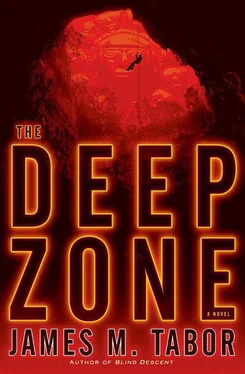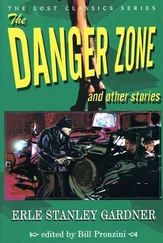Barnard took a deep breath. “Sir, we have received cultures of the pathogen from Afghanistan. Our own laboratories are just beginning their work. Until we’ve had some time with the thing, I would respectfully suggest that it would be best to maintain silence.”
The president nodded. “Thank you, Dr. Barnard. We value your opinion highly because, as I understand it, your laboratories were very close to formulating promising new antibiotics. That puts you closer than anyone else to producing something that might be effective against this germ.”
“Thank you, sir.” Barnard thought, Rock and hard place. If he keeps it quiet and there’s a pandemic, they’ll say he should have told the world. If he goes public and there’s a panic, they’ll say he caused it. Glad I’m not in his seat .
The president spoke again, bringing that part of their discussion to a close. “Now. Can you brief us quickly on what’s being done over there at BARDA?”
“Of course, sir. Since we first learned of the crisis, we’ve employed a three-pronged approach. One of our lab groups has been trying to synthesize an antibiotic that might prove effective. Another is trying to synthesize moonmilk itself—the extremophile that we had been working with earlier. And a third will now begin looking for a way to disrupt ACE’s genetic codes.”
Barnard waited for questions. Lathrop had told him and the others that his boss, Hunter Mason, and the president both knew about the moonmilk mission to Cueva de Luz. Barnard assumed that Rathor and Washinsky had been briefed as well. But events had been unfolding very quickly, and no one had verified that fact for him. Because of the Cueva de Luz mission’s secrecy and, given its unusual nature, the potential for political backlash, he had decided not to speak of it until the president did.
No one asked him any questions. The president leaned forward, looked down at his notes, then up again. “Doctor, I understand you also have people looking for that extremophile in its natural form.”
“Yes, sir.”
“How would you estimate their chances of success?”
Barnard had been anticipating this question, but he still wasn’t sure how to answer it. The fact that the president and his people were not actually in the room did nothing to lessen Barnard’s awareness of their inestimable power. It was like sitting next to explosives that might detonate at any moment without warning. In his whole life, the only comparable experience had been his reaction to combat in Vietnam, an intoxicating brew of fear, awe, and ecstasy. The adrenaline affected heart rate and respiration and, as he well knew, could bend judgment as well. Always tempting to overpromise. Better to underpromise and overdeliver . He also recalled Haight’s words during their briefing: “a desperate thing.” He thought, Occupy the middle ground .
“I would say their chances are good, sir.”
It was as neutral as he could be without raising false hopes of success or leaving the impression that failure was preordained. O’Neil just nodded. Washinsky and Mason remained expressionless because, Barnard assumed, as nonscientists they placed little stock in what must have sounded something like science fiction to them. Nathan Rathor’s eyebrows went up, wrinkling his forehead, and he frowned. The expression was visible only for a millisecond, but long enough to reveal itself as surprise, and that, in turn, surprised Barnard.
“I thought that those people in the cave were a pretty long shot,” Rathor said.
Why? Barnard wondered. He had had no direct communication with Rathor about this. But not yours to question why, old man. A cabinet officer has sources you can’t even dream of .
“They will face— are facing—many challenges, Mr. Secretary,” Barnard agreed. He hesitated, struggling for some right way to say this, and then found the words. “I can tell you that if any team on earth could accomplish such a mission, it is this one.”
Rathor looked as though he were about to ask another question, but then put his flat, cabinet officer face on again and said only, “I understand. That’s all from me, Mr. President.”
The president, though, was not quite finished. “I have two last questions, and then we will let you go. If your laboratory does come up with a drug that is effective against ACE, won’t it take many months to produce enough vaccine? You have to grow it in eggs, don’t you?”
“Vaccine you do, yes sir. An antibiotic is different. Once we understand its genetic code, we can produce essentially unlimited amounts relatively quickly. Something like a million doses in two weeks if we involve private-sector assets. Then the real problem would be further down the pipeline. In other words, how do we get the drug quickly to the millions who might need it by then?”
The president looked hugely relieved. “Doctor, I have to tell you, that’s the first piece of good news I’ve heard in a week. Distribution is a problem we can handle. Now my second question: how many casualties are we talking about?”
“Worst case, Mr. President?”
“Of course. There’s no other way to plan.”
Barnard got up from behind his desk and walked to a whiteboard on the wall. The system’s motion-sensitive telecom camera tracked him all the way. David Lathrop moved to stay out of the frame.
“Mr. President, our best information at this point is that ACE’s contagion factor is faster than that of smallpox. Here’s what that looks like.”
With a red marking pen, Barnard drew a numeral:
1
“This scenario assumes that ACE has broken containment. The pathogen appears to reach contagion stage after three to five days. It’s about seven to ten with smallpox, by the way—a significant difference between the two. Once contagious, that first person—the index case—will transmit the infection to about twelve people every day in your typical urban setting.”
Beneath the 1, Barnard wrote
DAY THREE:
12
“Those twelve will become contagious within the same time period, and each of them will infect another twelve.”
DAY SIX:
144
After that he stopped talking and just drew:
DAY NINE:
1,728
DAY TWELVE:
20,736
DAY FIFTEEN:
248,832
DAY EIGHTEEN:
3,257,437
Barnard stepped to one side of the board and waited. Absurdly, he worried for a moment about the dimple in his tie knot. Then that he might have forgotten to raise his zipper after his last trip to the bathroom. Stress , he thought. Stay focused .
No one spoke. No one in the Situation Room would until the president did. O’Neil stared at the whiteboard for a long time.
“You’re telling me,” said the president, “that if this thing breaks out, absent some countermeasure, we will have three million infected people in three weeks? And that nine out of ten of them could die?”
“No, sir.”
“Then what are you telling me?”
“That it’s not if ACE will break out, sir. It’s when .”
The president’s normally rich skin tone had turned to ashen gray. His mouth opened, closed. He put a hand on his forehead, let it drop. “What in God’s name will we do with three million infected corpses?”
For that, Barnard had no answer. Apparently, neither did any of the others.
The screen went blank.
• • •
“The man of the hour,” David Lathrop said, pushing off from the wall where he had been leaning, out of camera range, while the teleconference went on. Possibly excepting Lew Casey, Barnard was closer to David Lathrop than he was to any other person in government. Lathrop was younger, but they had much in common, including war. Barnard’s had been Vietnam, Lathrop’s the First Gulf War, special operations. After the war, Lathrop migrated to the CIA. He completed several tours as a field operative, moved up to running his own stable of agents, and finally came in to serve as CIA’s senior liaison with BARDA.
Читать дальше












